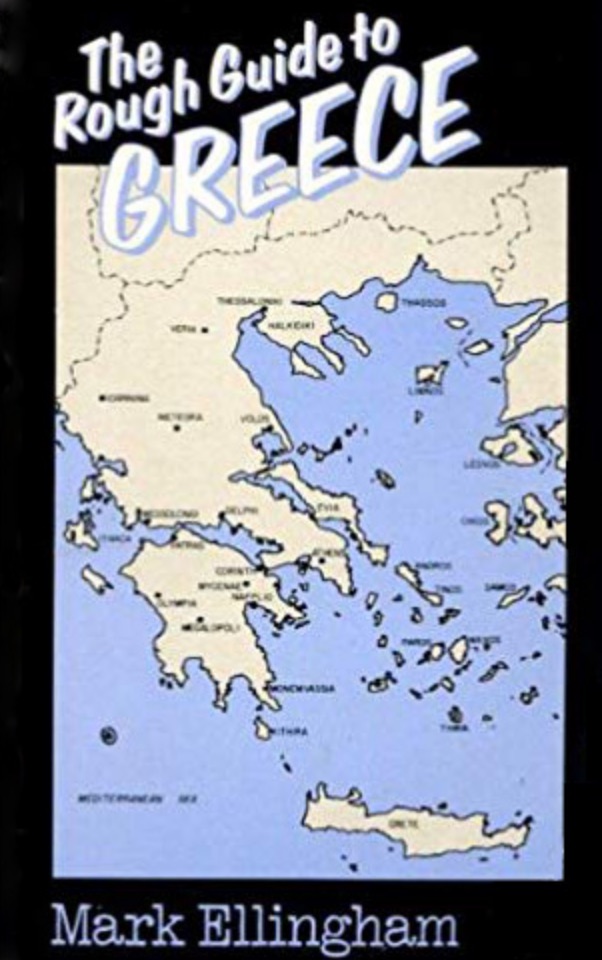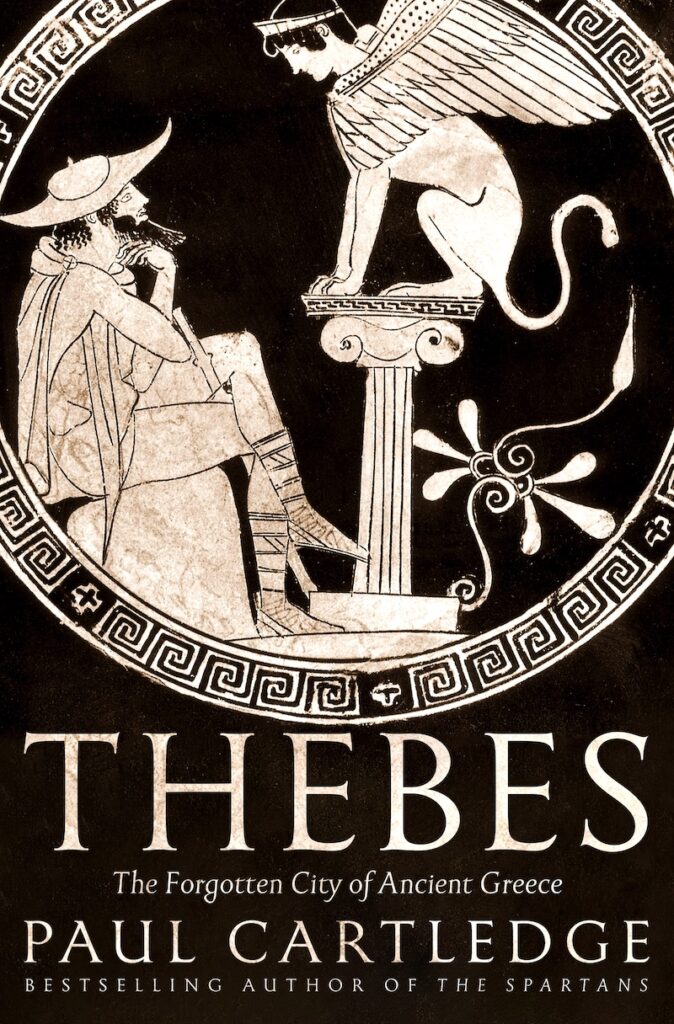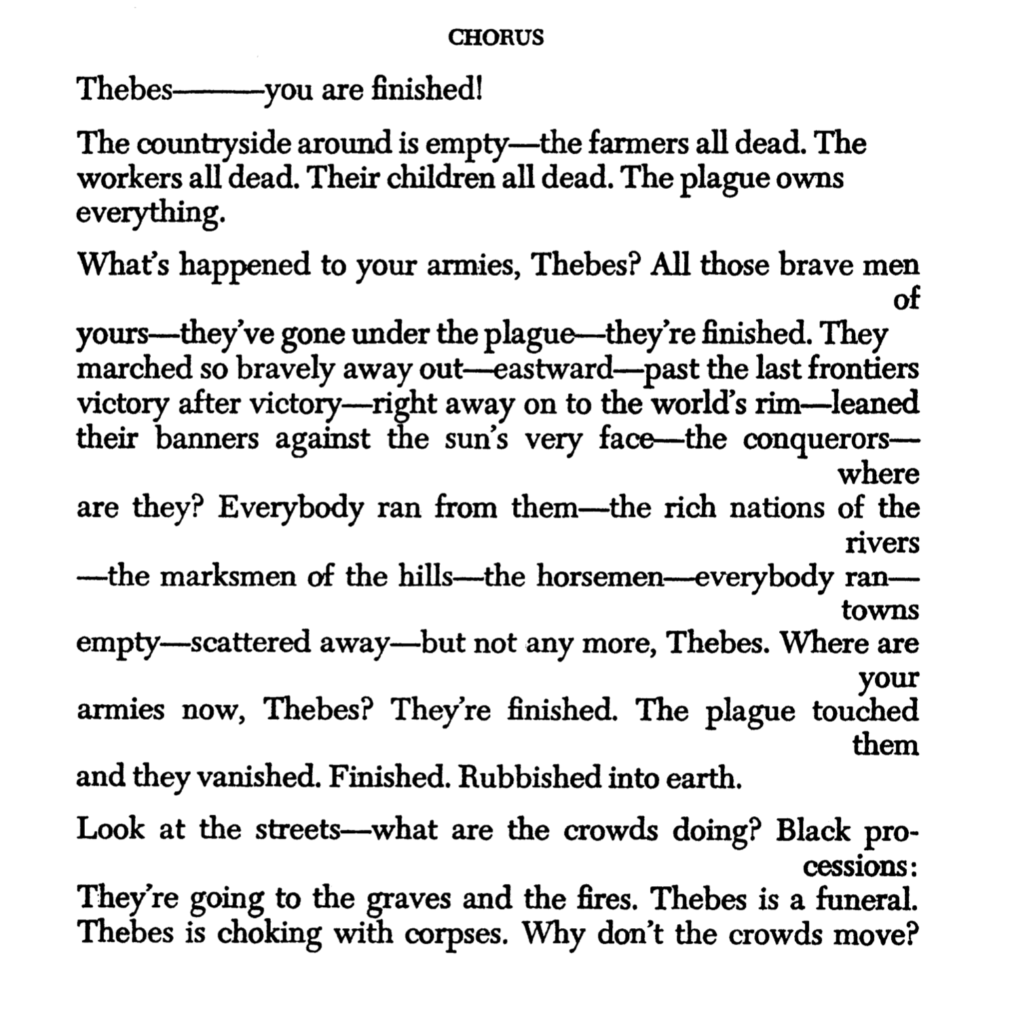Sometimes – and it’s the case with the subject of this programme – a book is published and you think, “I am as close to dead centre in the target readership for that book as it’s possible to be.” Let me explain…

Just after I graduated, I went to Greece to teach English for a year. Not to some whitewashed Cycladic island or to Athens, but to a much smaller city 90 km by road north-west of the capital in a fertile plain: Thebes. The very first Rough Guide, which was to Greece, had recently been published. If I remember correctly, it called Thebes a “dusty provincial town”. But to me, its name stood out from those of other dusty provincial towns. How could it not? Seven-gated Thebes whose patron god was Dionysus, birthplace of Herakles, the city of Oedipus and Antigone. A few years before going to Greece, I’d been captivated by Ted Hughes’ version of the Oedipus legend on the radio, adapted from the Roman dramatist Seneca. Plague-stricken, accursèd, blood-soaked Thebes – it was bound to make an impression.
The reality, perhaps inevitably, was more Rough Guide than Seneca/Hughes, but Thebes’ history is as long and rich as its legends. Every day on the way to school, I’d pass the remains of a Mycenaean palace. There were no monuments to rival Athens (and trying to rival Athens is a big part of Thebes’ story), but it was hard not to be impressed when someone told you, “This was the crossroads where Oedipus killed his father, this was where the sphinx posed her riddle.”

But for all its importance to Greek history and myth, Thebes tends to get bit parts in the broader story of ancient Greece – until now. Paul Cartledge, Emeritus A.G. Leventis Professor of Greek Culture at Cambridge University, has devoted a whole book to what he calls the “forgotten city” of ancient Greece. And even if you didn’t spend a year teaching in Thebes in the late 1980s, I think you’re likely to find it fascinating for the fresh insights that a shift in perspective can bring, seeing the world not from “violet-crowned” Athens – as Theban poet Pindar put it, a reference to the city’s atmospheric purple haze – but from “the dancing floor of Ares”, as Theban general Epaminondas called Boeotia, the province where Thebes is located.

A flavour of Ted Hughes’ Thebes that captured my teenage imagination:

